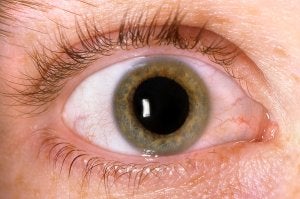 People with diabetes must visit their ophthalmologist or eye doctor in Chicago regularly for eye care. Diabetes increases your risk of developing certain eye conditions, including diabetic eye disease, vision loss, and blindness. To lower this risk, and your need for future vision correction, you should take the time to learn more about these eye conditions, start by reading these answers to common questions about diabetic eye disease.
People with diabetes must visit their ophthalmologist or eye doctor in Chicago regularly for eye care. Diabetes increases your risk of developing certain eye conditions, including diabetic eye disease, vision loss, and blindness. To lower this risk, and your need for future vision correction, you should take the time to learn more about these eye conditions, start by reading these answers to common questions about diabetic eye disease.
What Eye Conditions Are Grouped Among Diabetic Eye Diseases?
Diabetic eye disease encompasses a group of eye conditions for which someone with diabetes may be at increased risk. These conditions include glaucoma, cataracts, and diabetic retinopathy. Glaucoma results from an increase of the fluid pressure within the eye, which eventually causes optic nerve damage and vision loss. Cataracts are caused by a clouding of the eye’s lens, leading to vision problems that require eye correction. The most common is diabetic retinopathy, which is caused by damage to the retinal blood vessels.
What Are Their Symptoms?
Glaucoma causes few initial symptoms, and most patients don’t realize that they have the condition until they suffer from peripheral vision loss. The condition can also cause headaches, blurred vision, eye pain, eye redness, nausea, tunnel vision, and seeing halos around lights. Cataract symptoms include vision that is cloudy, dimmed, or blurry, seeing halos around lights, light sensitivity, poor night vision, distortion of color perception, and a need for progressively increased vision correction. Symptoms of diabetic retinopathy occur later in the disease’s progression, and include floaters, blurry vision, impaired color vision, an intermittent need for vision correction, and vision loss.
How Can I Prevent Diabetic Eye Disease?
You can’t prevent diabetic eye disease, but you can significantly lower your risk of developing an eye condition, or of suffering from vision loss if an eye condition develops. If you suffer from diabetes, you must visit your ophthalmologist for eye care once a year, including a comprehensive, dilated eye exam. If your eye doctor detects symptoms of an eye condition early enough, your treatment and vision correction will be much more effective.

